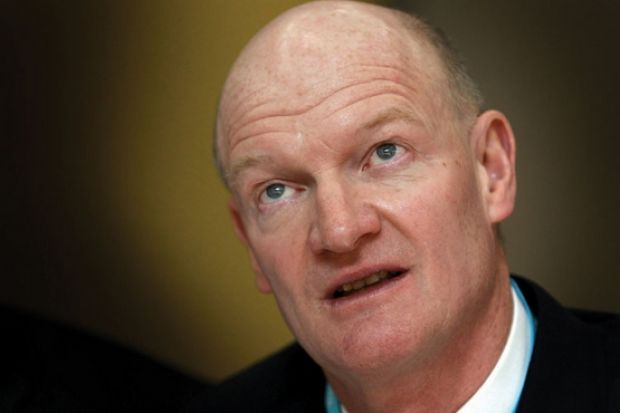Source: PA
May-need-to-know basis: minister: survey could have uses ‘we can’t imagine’
David Willetts has drawn praise from an unlikely quarter for his support for longitudinal research and his “prolonged and persistent” campaign to persuade the government to spend millions of pounds on a new birth cohort study.
Left-leaning commentator Polly Toynbee said she was “unaccustomed to praising this government”, but thanked the universities and science minister for “putting evidence first – even if that risks history recording some awkward facts about this era”.
Speaking at the launch of a report for the Academy of Social Sciences, Making the Case for the Social Sciences – Longitudinal Studies, Ms Toynbee said that birth cohort studies were “the crown jewels…in the long and distinguished history of British social science”.
Her main regret was that the UK’s “world-class longitudinal data” were seldom matched by “world-class social policy based on [them]”.
Diana Kuh, director of the Medical Research Council Unit for Lifelong Health and Ageing, described how collecting fresh data from the 1946 birth cohort had enabled researchers to demonstrate that “the health legacy of social inequality in childhood persists up to retirement”.
Similar studies were essential for addressing “the scientific and political priority” to “improve the well-being of ageing baby boomers”.
Mr Willetts told the event that he wanted to “maintain the canonical succession of birth cohort studies dating back to 1946”, even though this had been interrupted between 1970 and 2000, and “to collect the data for others to use in 50 years’ time in ways we can’t imagine”.
Yet he also issued a challenge to academics. He poked gentle fun at those who, when he was trying to organise a tour by experts to explain the new fees regime, had asked them not to go to certain institutions, so researchers could carry out a comparative analysis of the initiative’s impact.
He also suggested that the UK needed far more research on “the difficult question of: ‘How much social mobility do you buy for different interventions at different stages of the life cycle?’”
Meanwhile, Ziyad Marar, global publishing director of SAGE, which sponsored the event at the BIS Conference Centre on 11 June, highlighted “a climate of mixed fortunes for social science”.
He referred to controversial moves by Republicans in the US to take away funding for political science from the National Science Foundation.
While the UK had seen less “intellectual vandalism” of that kind, he was still worried by how often “big science drives the debate”, for example on open access.
Register to continue
Why register?
- Registration is free and only takes a moment
- Once registered, you can read 3 articles a month
- Sign up for our newsletter
Subscribe
Or subscribe for unlimited access to:
- Unlimited access to news, views, insights & reviews
- Digital editions
- Digital access to THE’s university and college rankings analysis
Already registered or a current subscriber? Login




